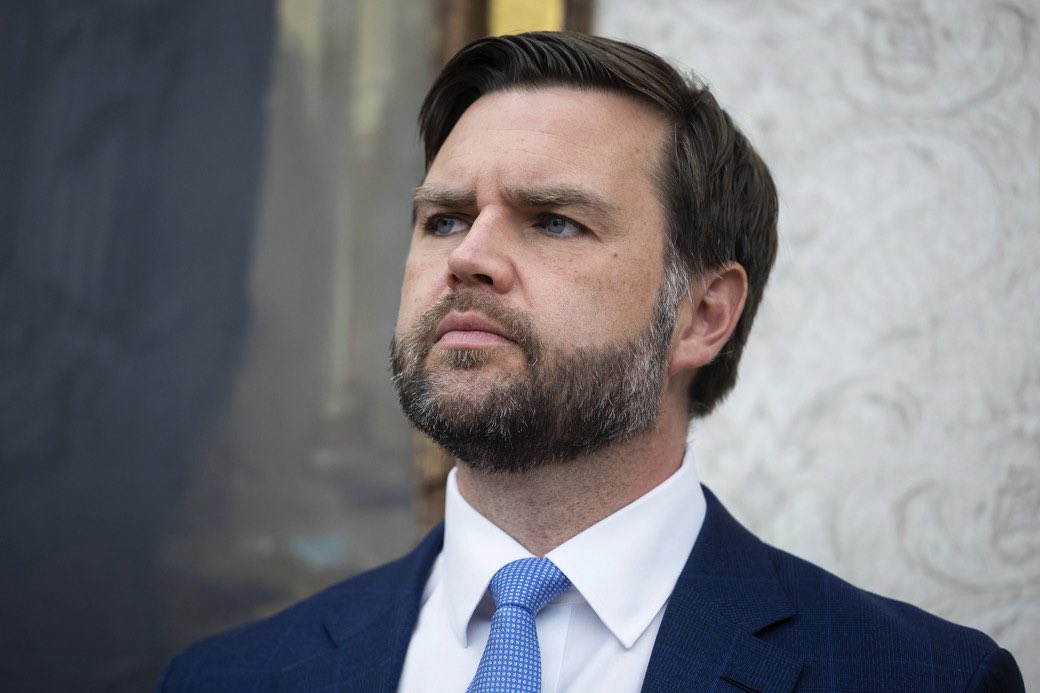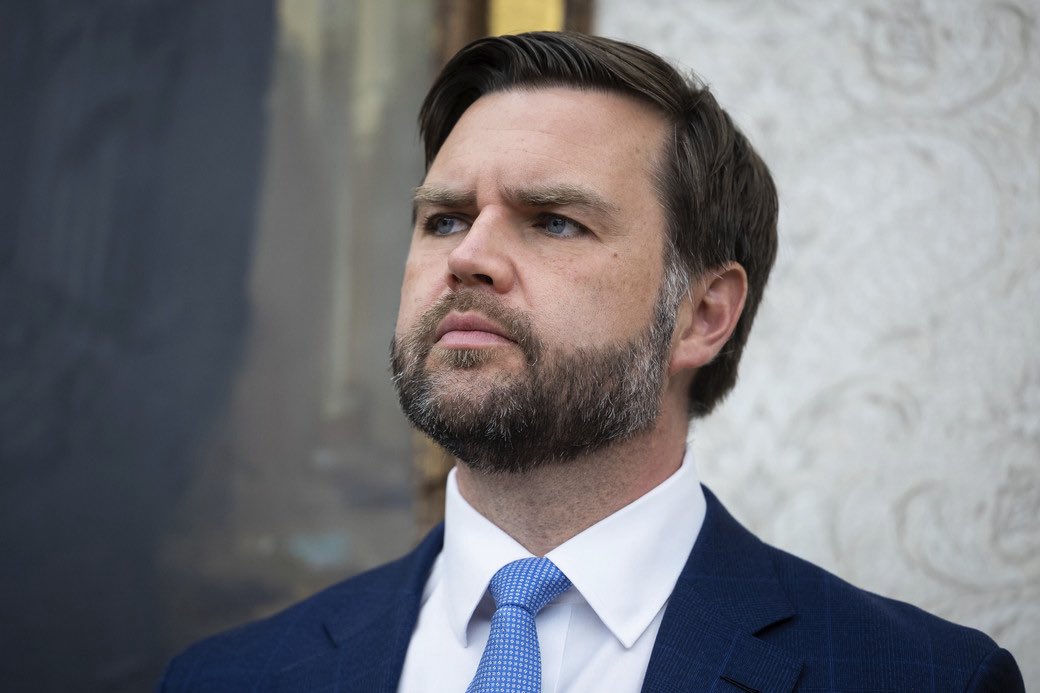VP Vance Claims Israel is Dragging US into War with Iran!
Tensions Rise in U.S.-Iran Relations: VP JD Vance’s Intervention
In a rapidly evolving global context, U.S. foreign policy regarding Iran is facing scrutiny and debate. A recent phone call involving Vice President JD Vance has shed light on the complexities of this situation. Reportedly, Vance is pushing back against calls for military action against Iran, emphasizing concerns that Israel’s actions may inadvertently entangle the United States in a war.
Understanding the Context
The backdrop to this discussion is the ongoing tension between the U.S., Israel, and Iran. Israel has expressed urgency regarding Iran’s nuclear program, particularly focusing on the Fordow facility, which is believed to be a critical site for Iran’s nuclear development. The Israeli government, under the leadership of Prime Minister Benjamin Netanyahu, has been vocal about its concerns and has sought immediate action to address perceived threats.
VP JD Vance’s Stance
During the tense phone call, VP JD Vance articulated his concerns about the implications of a military strike on Iran. He reportedly argued that while Israel’s security is paramount, the U.S. must be cautious not to be drawn into a conflict that could lead to a broader war in the Middle East. Vance’s position reflects a nuanced understanding of the geopolitical landscape, highlighting the need for a balanced approach that prioritizes diplomacy and regional stability.
- YOU MAY ALSO LIKE TO WATCH THIS TRENDING STORY ON YOUTUBE. Waverly Hills Hospital's Horror Story: The Most Haunted Room 502
The Urgency from Israel
In the call, Israeli officials communicated their impatience regarding the U.S. response to Iran’s nuclear ambitions. They stressed that they could not afford to wait two weeks for a decision from President trump regarding potential military action against Fordow. This urgency underscores the high stakes involved, as Israel views Iran’s nuclear capabilities as an existential threat.
The Broader Implications
The conversation between VP Vance and Israeli officials highlights the delicate balance the U.S. must maintain in its foreign policy. On one hand, the U.S. has long-standing alliances in the region, particularly with Israel. On the other hand, there is a growing sentiment among certain U.S. leaders, including Vance, that military intervention may not be the most effective solution to the challenges posed by Iran.
Public Reaction and Political Ramifications
The dynamics of this phone call have not gone unnoticed in the political arena. Public reaction to the U.S.’s approach to Iran has been mixed, with some advocating for a more aggressive stance while others call for restraint and dialogue. Vance’s intervention may resonate with constituents who are wary of another military engagement in the Middle East, reflecting a broader desire for a diplomatic resolution to international conflicts.
Conclusion
As tensions between the U.S. and Iran continue to escalate, the role of figures like VP JD Vance in shaping foreign policy will be crucial. His pushback against military action, coupled with the urgency expressed by Israeli officials, illustrates the complexities of international relations in a volatile region. The outcome of this situation will likely have lasting implications for U.S. foreign policy and its relationships with key allies, particularly Israel. The call for caution and diplomacy may pave the way for a more measured approach to addressing the challenges posed by Iran’s nuclear program, potentially averting a conflict that could have dire consequences for all parties involved.
Key Takeaways
- Vice President JD Vance’s Role: Vance is advocating for a cautious approach regarding military action against Iran.
- Israel’s Urgency: Israeli officials are pushing for immediate action against Iran’s Fordow facility, highlighting the high stakes involved.
- Geopolitical Complexities: The U.S. must balance its commitments to allies with the potential risks of military intervention.
- Public Sentiment: There is a division in public opinion regarding the U.S. approach to Iran, affecting political discourse and decision-making.
As the situation develops, it will be essential to monitor how U.S. leadership navigates these complex relationships and the potential for diplomatic solutions in the face of escalating tensions.

In a tense phone call, VP JD Vance pushed back against an attack on Iran, reportedly arguing that Israel is dragging America into war.
The Israelis told Trump that they don’t want to wait two weeks for him to make a decision before moving against Fordow.
Follow: @AFpost pic.twitter.com/7Z7NWlySv8
— AF Post (@AFpost) June 21, 2025
In a tense phone call, VP JD Vance pushed back against an attack on Iran, reportedly arguing that Israel is dragging America into war.
Recent geopolitical tensions have sparked heated discussions, especially concerning the U.S. stance on Iran. In a tense phone call, Vice President JD Vance found himself in the midst of a complex situation, pushing back against an attack on Iran. Reports reveal that the VP is concerned about Israel’s influence, suggesting that it might be dragging America into a military conflict that could escalate quickly and have far-reaching consequences.
What’s interesting here is the relationship dynamics between the U.S. and Israel. Many observers are questioning whether the U.S. should be taking cues from Israel, especially when it comes to military actions that could lead to significant repercussions. Vance’s position indicates a growing divide within U.S. leadership on how to approach Iran and the broader Middle East situation.
The Israelis told Trump that they don’t want to wait two weeks for him to make a decision before moving against Fordow.
Amidst this backdrop, the urgency of the situation is palpable. Reports suggest that Israeli officials have expressed frustration with the pace of decision-making in the U.S. They conveyed to former President Donald Trump that they don’t want to wait two weeks for him to make a decision regarding actions against Fordow, Iran’s nuclear facility. This kind of urgency underscores the high stakes involved in the region.
Fordow has been a focal point in discussions about Iran’s nuclear program. The facility, which is located deep underground, is often viewed as a significant threat by Israel and its allies. The notion that Israel is ready to act without waiting for American approval raises questions about the nature of U.S.-Israel relations and the balance of power in decision-making processes regarding military actions.
The Implications of Military Action Against Iran
Military action against Iran is not just about one nation’s interests; it has the potential to destabilize the entire region. The consequences of a strike against Fordow could lead to a broader conflict involving multiple nations, including U.S. allies. Moreover, this situation could further complicate the already delicate negotiations surrounding Iran’s nuclear program.
JD Vance’s pushback highlights a crucial debate within U.S. politics: how involved should America be in foreign conflicts, especially when they could lead to war? Many Americans are weary of military engagements that seem to have no clear endgame, and Vance’s stance might resonate with those who advocate for a more cautious approach.
Public Opinion and Political Ramifications
Public opinion plays a significant role in shaping foreign policy. As tensions rise, the American public is increasingly vocal about their preferences regarding military intervention. Many citizens express a desire for diplomacy over conflict, reflecting a wariness of becoming entangled in yet another protracted war.
Political figures like JD Vance are acutely aware of these sentiments. By voicing concerns about Israel’s influence and the potential for dragging America into war, Vance is not only taking a stand on foreign policy but also aligning himself with a segment of the electorate that values restraint and careful deliberation over hasty military action.
The Role of Media in Shaping Narratives
In today’s fast-paced digital landscape, the media plays a crucial role in shaping narratives around international relations. The way in which information is presented can significantly influence public perception. The coverage of Vance’s phone call and the subsequent reactions will likely impact how citizens view the U.S.’s role in the Middle East.
Media outlets that emphasize the urgency of military action may sway public opinion toward supporting intervention, while those that highlight the potential consequences of such actions may lead to increased calls for diplomacy. This dynamic underscores the importance of responsible journalism in informing the public and shaping discourse around critical issues.
Future of U.S.-Iran Relations
The future of U.S.-Iran relations remains uncertain. As discussions around Iran’s nuclear ambitions continue, the stakes are high. The Biden administration has sought a diplomatic approach, but as tensions escalate, the possibility of military action lurks in the background. The question remains: how will U.S. leaders navigate this complex landscape?
Vice President JD Vance’s recent pushback against military action could signal a shift toward a more cautious approach. If more leaders adopt this perspective, it may lead to a reevaluation of U.S. foreign policy in the region, potentially prioritizing negotiations over military interventions.
The Broader Geopolitical Context
Understanding the broader geopolitical context is essential for comprehending the implications of these developments. The Middle East is a volatile region with numerous players, including Russia and China, who have vested interests in Iran’s nuclear capabilities. The U.S.’s actions and decisions can have ripple effects, influencing relations with other nations and altering the balance of power in the region.
Moreover, the interconnectedness of global politics means that any military action taken by the U.S. or Israel could prompt responses from other nations, further complicating an already intricate situation. This is why Vance’s pushback is significant; it reflects a growing awareness of the complexities involved in military engagements.
The Importance of Diplomatic Solutions
As the world watches these developments unfold, the importance of diplomatic solutions cannot be overstated. Engaging in dialogue and negotiations can often yield better outcomes than military interventions. History has shown that wars can have unintended consequences, leading to long-term instability and suffering.
Leaders like Vance advocating for caution may pave the way for a renewed focus on diplomacy. By prioritizing discussions and seeking common ground, the U.S. can work towards a more stable and peaceful resolution to the challenges posed by Iran’s nuclear program.
Conclusion: Navigating a Complex Landscape
The situation surrounding Iran is a complex and evolving narrative that requires careful navigation. Vice President JD Vance’s pushback against military action highlights the importance of considering the broader implications of U.S. involvement in foreign conflicts. As tensions rise and decisions loom, the focus should remain on finding diplomatic solutions that prioritize stability and peace in the region.
In an era where public sentiment is increasingly influential, leaders must be attuned to the desires of their constituents. Engaging in proactive discussions and advocating for restraint may not only align with public opinion but also contribute to a safer and more secure international landscape.
To stay updated on this evolving situation and other related geopolitical issues, be sure to follow [@AFpost](https://twitter.com/AFpost). Their coverage provides valuable insights into the intricate dynamics at play.
“`

